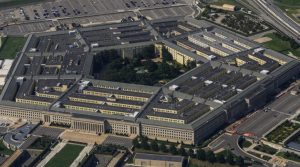Top defense officials from the United States and China engaged in a significant face-to-face meeting at the Pentagon on Monday and Tuesday, marking the first in-person interaction since January 2020. This gathering marked the resumption of an annual tradition, wherein discussions regarding military operations and other military-to-military contacts took place.

The meeting unfolded against the backdrop of a modest thaw in relations between Washington and Beijing. The months preceding the talks had witnessed a dearth of communication between military and political leaders, raising concerns about a potential confrontation between these two formidable military and economic powers.
The pivotal discussions were helmed by Michael Chase, the Pentagon’s Deputy Assistant Secretary of Defense for China, and Maj. Gen. Song Yanchao, deputy director of China’s Central Military Commission’s office for international military cooperation.
Over the course of the two-day deliberations, the delegations delved into various aspects of defense relations. The U.S. representatives underscored the significance of maintaining open lines of military communication. According to a statement from DOD spokesperson Lt. Col. Martin Meiners, the U.S. side reaffirmed its commitment to navigating international waters responsibly and safely. Addressing concerns, they highlighted instances of perceived harassment against lawfully operating Philippine vessels by the People’s Republic of China (PRC) in the South China Sea. Furthermore, the U.S. reiterated its unwavering commitment to its longstanding Taiwan policy.
The visit of the Chinese delegation to Washington closely followed the meeting between President Joe Biden and Chinese President Xi Jinping in California in November. Subsequently, in December, Chair of the Joint Chiefs Gen. CQ Brown engaged in a conversation with his Chinese counterpart, People’s Liberation Army Gen. Liu Zhenli.
The U.S.-PRC Defense Policy Coordination Talks, typically held annually, shifted to virtual platforms in 2021 due to the global circumstances. However, in 2023, China decided to cancel these talks in protest of then-Speaker of the House Nancy Pelosi’s visit to Taiwan in August 2022. This move by China led to the suspension of all talks between military officials and the initiation of China’s largest live-fire drills in decades, including the launch of a missile over Taiwan.
A senior defense official, speaking on the condition of anonymity to address sensitive internal matters, emphasized the significance of these deputy-level policy discussions. These sessions provide an opportunity for frank and candid dialogue about the U.S.-PRC defense relationship and any concerns that may exist.
The lack of communication between military leaders from the two countries had raised fears of potential military miscalculation in the Indo-Pacific region. China’s assertive naval maneuvers in the South China Sea, including harassing Philippine navy vessels and trailing American surveillance planes, added to the complexities.

